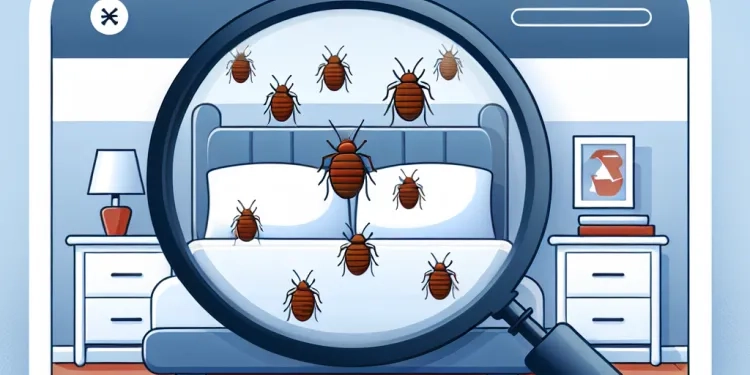
Find A Professional
More Items From Ergsy search
-

Can the flu vaccine give me the flu?
Relevance: 100%
-

How effective is the flu vaccine?
Relevance: 99%
-

Current Flu Vaccination Recommendations and Availability
Relevance: 95%
-

When is the best time to get the flu vaccine?
Relevance: 92%
-
Does the flu vaccine protect against COVID-19?
Relevance: 91%
-

Can pregnant women get the flu vaccine?
Relevance: 89%
-

How long does it take for the flu vaccine to become effective?
Relevance: 85%
-

Who should get the flu vaccine in the UK?
Relevance: 82%
-

Is the flu vaccine free for everyone in the UK?
Relevance: 81%
-

What if I'm not eligible for a free flu vaccine, can I still get vaccinated?
Relevance: 79%
-

Can children receive the flu vaccine as a nasal spray?
Relevance: 76%
-

Flu vaccinations for people with a learning disability
Relevance: 74%
-

Where can I get the flu vaccine?
Relevance: 70%
-

What if I have an egg allergy, can I still get the flu vaccine?
Relevance: 68%
-

How do I book an appointment for the flu vaccine?
Relevance: 68%
-

Are there any side effects to the flu vaccine?
Relevance: 60%
-

Children's Vaccination Schedule
Relevance: 52%
-

How does vaccination affect measles rates?
Relevance: 51%
-

If I had the flu vaccine last year, do I need to get it again this year?
Relevance: 48%
-

Understanding Seasonal Flu: Prevention and Treatment
Relevance: 48%
-

Do I need any vaccine injections for EU countries?
Relevance: 47%
-

Flu can be fatal
Relevance: 47%
-

Surge in HPV Vaccination Rates Among Young Women in the UK
Relevance: 46%
-

Can adults receive the MMR vaccine?
Relevance: 46%
-

Are vaccines linked to autism?
Relevance: 44%
-

Just the flu? | NHS
Relevance: 44%
-

Can the measles vaccine be given to adults?
Relevance: 43%
-

How effective is the MMR vaccine?
Relevance: 43%
-

Latest Advice on Managing Respiratory Illnesses During Flu Season
Relevance: 42%
-

Do vaccines work against new COVID-19 variants?
Relevance: 42%
-

Symptoms of flu (influenza)
Relevance: 39%
-

What is the year 8 HPV vaccine? | NHS
Relevance: 39%
-

Treating flu (influenza)
Relevance: 37%
-

Who should receive the MMR vaccine?
Relevance: 37%
-

At what age is the MMR vaccine given in the UK?
Relevance: 37%
-

Is it necessary to get a measles vaccine before travelling?
Relevance: 36%
-

Why is measles less common in the UK?
Relevance: 32%
-

Why are measles outbreaks still occurring?
Relevance: 32%
-

Heart Failure : Treatment and monitoring of fluid retention
Relevance: 31%
-

What is the current measles vaccination coverage in the UK?
Relevance: 30%
Introduction
The flu vaccine is an important tool in preventing seasonal influenza, a potentially serious respiratory infection. As with any medical intervention, it is essential to be informed about potential side effects. This article provides a comprehensive overview of the side effects associated with the flu vaccine, particularly for those in the UK.
Common Side Effects
The majority of flu vaccine side effects are mild and temporary. Commonly, individuals may experience soreness, redness, or swelling at the injection site. This is a normal reaction as the body builds protection. Some people might also develop a low-grade fever, headache, or muscle aches. These symptoms typically resolve on their own within a couple of days without requiring medical attention.
Uncommon Side Effects
Although uncommon, some individuals may experience more pronounced reactions. These can include dizziness, fainting (particularly in adolescents), or allergic reactions. Allergic reactions are rare but may result in symptoms like a rash, shortness of breath, or in severe cases, anaphylaxis. Healthcare providers are trained to manage such symptoms effectively.
Post-Vaccination Guidance
After receiving the flu vaccination, it is advised to rest if you feel unwell and to drink plenty of fluids. Over-the-counter pain relievers such as paracetamol can help manage mild symptoms. It is important to monitor any side effects and seek medical advice if they persist or worsen. In the UK, the Yellow Card Scheme allows individuals to report any side effects, providing valuable data for monitoring vaccine safety.
Who Should Seek Medical Advice?
Certain individuals should be more vigilant about side effects. Those with a history of severe allergic reactions to any component of the vaccine should speak with their healthcare provider. Additionally, anyone who experiences symptoms such as high fever or severe swelling should seek prompt medical attention. Pregnant women, individuals with compromised immune systems, or those with chronic health conditions are advised to consult with their GP before vaccination.
Conclusion
The flu vaccine's benefits generally outweigh the potential risks, as it plays a crucial role in preventing influenza outbreaks and protecting vulnerable populations. Most side effects are mild, representing the body's immune response to the vaccine. In the UK, continuous monitoring ensures that the flu vaccine remains safe for public use. Staying informed and seeking advice from healthcare professionals can help manage and alleviate any concerns regarding the flu vaccine's side effects.
Introduction
The flu vaccine helps stop the flu, which is a bad sickness that can make it hard to breathe. Like with any medicine, it's good to know about its side effects. This article talks about what happens after getting the flu vaccine, especially for people in the UK.
Common Side Effects
Most side effects from the flu vaccine are mild and go away quickly. Many people get a sore, red, or swollen arm where they got the shot. This is normal because it's how your body learns to fight the flu. Some might have a small fever, a headache, or sore muscles. These usually go away in a few days and you don't need to see a doctor.
Uncommon Side Effects
Sometimes, people may have stronger reactions. These can include feeling dizzy, fainting (more common in teenagers), or having an allergic reaction. Allergic reactions can be serious but are very rare. They can cause a rash, trouble breathing, or even anaphylaxis. Doctors and nurses know how to help if this happens.
Post-Vaccination Guidance
After the flu shot, rest if you don't feel well and drink lots of water. You can take pain medicine, like paracetamol, to help with mild pain. Keep an eye on how you feel and talk to a doctor if you still feel bad or get worse. People in the UK can use the Yellow Card Scheme to tell about any side effects. This helps keep track of how safe the vaccine is.
Who Should Seek Medical Advice?
Some people need to be more careful about side effects. If you had a bad allergic reaction to any part of the vaccine before, talk to your doctor. Also, if you get a high fever or really big swelling, see a doctor quickly. Pregnant women, people with weak immune systems, or people with health problems should ask their doctor before getting the shot.
Conclusion
The flu vaccine is important to stop the flu and keep people safe. Most side effects are not serious and show that your body is getting ready to fight the flu. In the UK, experts watch to make sure the vaccine is safe. Knowing what to expect and talking to doctors can help you feel better about the vaccine and its side effects.
Frequently Asked Questions
What are common side effects of the flu vaccine?
Common side effects of the flu vaccine include soreness, redness, or swelling at the injection site, low-grade fever, and aches.
Are there serious side effects associated with the flu vaccine?
Serious side effects are rare but can include allergic reactions. Immediate medical attention should be sought if severe symptoms occur.
Can the flu vaccine cause flu illness?
No, the flu vaccine cannot cause flu illness. The vaccine contains inactivated virus or viral proteins that cannot cause infection.
How long do flu vaccine side effects last?
Most side effects are mild and last a day or two.
Who is at risk for side effects from the flu vaccine?
Anyone can experience side effects, but they are generally mild. Those with a history of severe allergic reactions to components of the vaccine should consult a doctor.
Is it safe for pregnant women to get the flu vaccine?
Yes, the flu vaccine is safe and recommended for pregnant women. It helps protect both the mother and the baby.
Can the flu vaccine cause an allergic reaction?
While rare, some people may have an allergic reaction to a component of the vaccine. Symptoms may include difficulty breathing, hives, or swelling.
Does the flu vaccine interact with other medications?
The flu vaccine generally does not interact with other medications, but it is always best to discuss with a healthcare provider if you have concerns.
Can children receive the flu vaccine safely?
Yes, the flu vaccine is safe for children and is recommended for those 6 months and older.
Could a previous bad reaction to the flu vaccine affect future vaccinations?
If you have had a severe reaction to the flu vaccine in the past, consult your healthcare provider before getting vaccinated again.
What is Guillain-Barré Syndrome, and is it related to the flu vaccine?
Guillain-Barré Syndrome (GBS) is a rare disorder, and while it has been associated with vaccines, the risk is very low. The benefits of the vaccine outweigh this small risk for most people.
How is the flu vaccine monitored for safety?
The flu vaccine undergoes rigorous testing in clinical trials and continuous monitoring for safety through various surveillance systems.
Should people with egg allergies avoid the flu vaccine?
Most people with egg allergies can receive the flu vaccine safely. However, those with severe egg allergies should consult their healthcare provider.
Can the flu vaccine cause long-term side effects?
There is no evidence that the flu vaccine causes long-term side effects.
What are the differences in side effects between the flu shot and the nasal spray vaccine?
The nasal spray may cause mild cold-like symptoms, while the flu shot mostly causes localized effects like arm soreness.
Can the flu vaccine lead to autoimmune disorders?
Research does not show a causal link between flu vaccines and autoimmune disorders.
Is the flu vaccine safe for seniors?
Yes, the flu vaccine is safe and especially important for seniors due to their increased risk of flu complications.
What should I do if I experience side effects from the flu vaccine?
Most side effects are mild. If you have concerning symptoms or a serious reaction, seek medical care promptly.
Are there different side effects for different types of flu vaccines?
Side effects can vary slightly depending on the type of flu vaccine, such as the injection versus the nasal spray, but they are generally mild.
How do I report side effects from the flu vaccine?
Side effects can be reported to the Vaccine Adverse Event Reporting System (VAERS) which helps monitor vaccine safety.
What might happen after getting a flu shot?
Here are some things that might happen after you get a flu shot:
- Your arm might feel sore where you got the shot.
- You might get a mild fever.
- You might feel a bit tired.
These usually go away in a day or two. If you are worried, talk to someone you trust or a doctor.
You can try these things to feel better:
- Put a cool cloth on your arm.
- Drink plenty of water.
- Take a rest if you feel tired.
When you get a flu shot, your arm might hurt, get red, or swell up where you got the shot. You might also have a small fever and your body could feel sore.
Can the flu vaccine cause bad side effects?
The flu vaccine is usually safe. Most people do not have any problems after getting it.
Sometimes, people might feel a little sick or have a sore arm.
If you are worried, talk to a doctor or nurse. They can help you understand more.
Using pictures or videos might help you learn about this.
Serious side effects do not happen often. But, sometimes they can happen, like an allergic reaction. If you feel very sick or notice something bad, go to the doctor or hospital right away.
Can the flu shot make you sick with the flu?
No, the flu shot cannot give you the flu. The shot has tiny parts of the virus that are not alive, so they can't make you sick.
How long do flu shot side effects last?
After you get a flu shot, you might feel a little sick. This is called a side effect. Side effects do not last long. They usually go away in 1 or 2 days.
If you feel a side effect, try these things:
- Rest and take it easy.
- Drink lots of water.
- If you feel sore, you can use a cool cloth on the area.
If you are worried or if it lasts longer, ask someone like a doctor or a nurse for help.
Most side effects don't last long. They are usually mild and go away in a day or two.
Who might have side effects from the flu shot?
Some people can get side effects after a flu shot. Side effects are things that happen if your body does not like the shot.
People who might have side effects include:
- People who are allergic to eggs.
- People who had a bad reaction to a flu shot before.
- People with weak immune systems. The immune system helps fight germs.
If you are worried, talk to a doctor or nurse.
Things that can help:
- Ask someone you trust to help you read this.
- Use pictures or drawings to understand better.
- Write down any questions you have.
Anyone can have side effects, but they are usually not bad. If you have had a strong allergic reaction to something in a vaccine before, talk to your doctor.
Can pregnant women safely get the flu jab?
Yes, it is safe for pregnant women to get the flu jab. It helps protect both the mother and baby from getting sick. Doctors recommend it.
If you are pregnant and have questions, talk to your doctor or nurse. They can help you understand more.
Yes, the flu shot is safe for women who are going to have a baby. Doctors say it is a good idea. It keeps both the mom and the baby safe from the flu.
Can the flu shot cause an allergy?
Sometimes, a few people might have an allergy to something in the vaccine. This doesn’t happen often. But if it does, you might have trouble breathing, get itchy bumps on your skin, or have swelling.
Can the flu shot mix with other medicines?
The flu shot is safe for most people.
If you take other medicines, talk to a doctor or nurse.
They can tell you if the flu shot is okay for you.
Here are some helpful tips:
- Write down the names of all your medicines.
- Ask the doctor if the flu shot is good to take.
- Use picture charts to help remember medicines.
The flu shot usually doesn't mix badly with other medicines. But it's a good idea to talk to your doctor or nurse if you have any worries.
Is the flu vaccine safe for kids?
Yes, kids can get the flu vaccine safely. It helps keep them from getting sick with the flu.
If you want to learn more, ask a doctor or nurse. They can explain how the vaccine works.
Using pictures or videos can help you understand better. You can also ask someone you trust to read the information with you.
The flu shot is safe for kids. It is a good idea for kids who are 6 months old and older to get it.
Can having a bad reaction to the flu shot before make future shots different?
If you had a bad reaction to the flu shot before, talk to your doctor before getting it again.
What is Guillain-Barré Syndrome, and is it linked to the flu shot?
Guillain-Barré Syndrome (say: GEE-yan Bah-RAY) is an illness where the body's defense system attacks the nerves. It can make your muscles weak and sometimes hard to move.
Some people wonder if this illness is connected to getting a flu shot. It's very rare, but if you have concerns, talk to a doctor.
If reading is hard, try using a ruler or finger to follow the words. Reading out loud can also help. Also, asking someone to read aloud or explain can be very useful.
Guillain-Barré Syndrome (GBS) is a rare illness. Sometimes, it can happen after a person gets a vaccine, but this is very uncommon. For most people, getting the vaccine is safer and better than worrying about GBS.
How do doctors check the flu vaccine to make sure it's safe?
The flu shot is tested a lot to make sure it is safe. Doctors and scientists keep checking to make sure it works well.
Can people who are allergic to eggs get the flu shot?
If you have an egg allergy, you might wonder if you can get the flu shot. It's important to know that most people with egg allergies can still get the flu vaccine. Before you get the vaccine, you should talk to your doctor or nurse.
Here are some helpful tips:
- Tell your doctor or nurse about your egg allergy.
- They may watch you for a bit after the shot to make sure you are okay.
- There are different types of flu vaccines, and your doctor can pick the best one for you.
These tips can help you feel safer and stay healthy!
Most people who are allergic to eggs can get the flu shot safely. But if someone is very allergic to eggs, they should talk to their doctor first.
Can the flu shot cause problems later?
There is no proof that the flu shot causes problems that last a long time.
How do the side effects of the flu shot and the nasal spray vaccine differ?
The flu shot and the nasal spray vaccine help prevent the flu. They can cause different side effects.
Flu Shot Side Effects:
- Sore arm where you got the shot
- Feeling tired
- A slight fever
Nasal Spray Side Effects:
- Runny or stuffy nose
- Sore throat
- Cough
Remember:
- Check with a doctor or nurse if you feel unwell after getting vaccinated.
- You can use pictures or listen to someone read information to you for better understanding.
The nose spray might make you feel like you have a little cold. The flu shot can make your arm feel sore.
Can the flu shot make you sick with an autoimmune disease?
There is no proof that getting a flu shot causes autoimmune diseases.
Is the flu shot safe for older people?
The flu shot helps stop people from getting sick with the flu.
It is safe for older people to get the flu shot.
If you are worried, talk to your doctor.
Ask someone you trust to help you understand.
The flu shot is safe. It is very important for older people to get it because they can get very sick from the flu.
What if the flu shot makes me feel bad?
If you feel sick after the flu shot, it’s okay. Here’s what you can do:
- Tell an adult: Talk to a grown-up like a parent or a doctor.
- Rest: Make sure to take it easy and get plenty of sleep.
- Drink water: Keep drinking water to stay healthy.
- Use a cool cloth: Put a cold, wet cloth on areas that hurt or feel hot.
These might help you feel better. If you still feel bad, make sure to see a doctor.
Most side effects are not serious. If you feel worried or have a strong reaction, see a doctor quickly.
Do different flu vaccines cause different side effects?
Flu vaccines can cause some side effects. These depend on if you get the shot or the nasal spray. But don't worry, these side effects are usually mild.
How do I tell someone about bad reactions to the flu shot?
If you feel sick after getting the flu shot, it's important to let someone know. Here is how you can do it:
- Tell your doctor or nurse. They can help you feel better.
- You can also ask a grown-up to help you call the doctor.
- If you have a smartphone or tablet, you can use an app or website to report the problem. Ask an adult for help with this.
Remember, it's good to tell someone if you don't feel well after your flu shot.
You can tell someone if you feel unwell after a vaccine. There is a place called VAERS where people can share this information. It helps make sure vaccines are safe.
Useful Links
More Videos of Interestdiagnosis
- Ergsy carfully checks the information in the videos we provide here.
- Videos shown by Youtube after a video has completed, have NOT been reviewed by ERGSY.
- To view, click the arrow in centre of video.
- Most of the videos you find here will have subtitles and/or closed captions available.
- You may need to turn these on, and choose your preferred language.
- Go to the video you'd like to watch.
- If closed captions (CC) are available, settings will be visible on the bottom right of the video player.
- To turn on Captions, click settings .
- To turn off Captions, click settings again.
More Items From Ergsy search
-

Can the flu vaccine give me the flu?
Relevance: 100%
-

How effective is the flu vaccine?
Relevance: 99%
-

Current Flu Vaccination Recommendations and Availability
Relevance: 95%
-

When is the best time to get the flu vaccine?
Relevance: 92%
-
Does the flu vaccine protect against COVID-19?
Relevance: 91%
-

Can pregnant women get the flu vaccine?
Relevance: 89%
-

How long does it take for the flu vaccine to become effective?
Relevance: 85%
-

Who should get the flu vaccine in the UK?
Relevance: 82%
-

Is the flu vaccine free for everyone in the UK?
Relevance: 81%
-

What if I'm not eligible for a free flu vaccine, can I still get vaccinated?
Relevance: 79%
-

Can children receive the flu vaccine as a nasal spray?
Relevance: 76%
-

Flu vaccinations for people with a learning disability
Relevance: 74%
-

Where can I get the flu vaccine?
Relevance: 70%
-

What if I have an egg allergy, can I still get the flu vaccine?
Relevance: 68%
-

How do I book an appointment for the flu vaccine?
Relevance: 68%
-

Are there any side effects to the flu vaccine?
Relevance: 60%
-

Children's Vaccination Schedule
Relevance: 52%
-

How does vaccination affect measles rates?
Relevance: 51%
-

If I had the flu vaccine last year, do I need to get it again this year?
Relevance: 48%
-

Understanding Seasonal Flu: Prevention and Treatment
Relevance: 48%
-

Do I need any vaccine injections for EU countries?
Relevance: 47%
-

Flu can be fatal
Relevance: 47%
-

Surge in HPV Vaccination Rates Among Young Women in the UK
Relevance: 46%
-

Can adults receive the MMR vaccine?
Relevance: 46%
-

Are vaccines linked to autism?
Relevance: 44%
-

Just the flu? | NHS
Relevance: 44%
-

Can the measles vaccine be given to adults?
Relevance: 43%
-

How effective is the MMR vaccine?
Relevance: 43%
-

Latest Advice on Managing Respiratory Illnesses During Flu Season
Relevance: 42%
-

Do vaccines work against new COVID-19 variants?
Relevance: 42%
-

Symptoms of flu (influenza)
Relevance: 39%
-

What is the year 8 HPV vaccine? | NHS
Relevance: 39%
-

Treating flu (influenza)
Relevance: 37%
-

Who should receive the MMR vaccine?
Relevance: 37%
-

At what age is the MMR vaccine given in the UK?
Relevance: 37%
-

Is it necessary to get a measles vaccine before travelling?
Relevance: 36%
-

Why is measles less common in the UK?
Relevance: 32%
-

Why are measles outbreaks still occurring?
Relevance: 32%
-

Heart Failure : Treatment and monitoring of fluid retention
Relevance: 31%
-

What is the current measles vaccination coverage in the UK?
Relevance: 30%





















































































































































































































































































































































































































































































































































































































































































































































